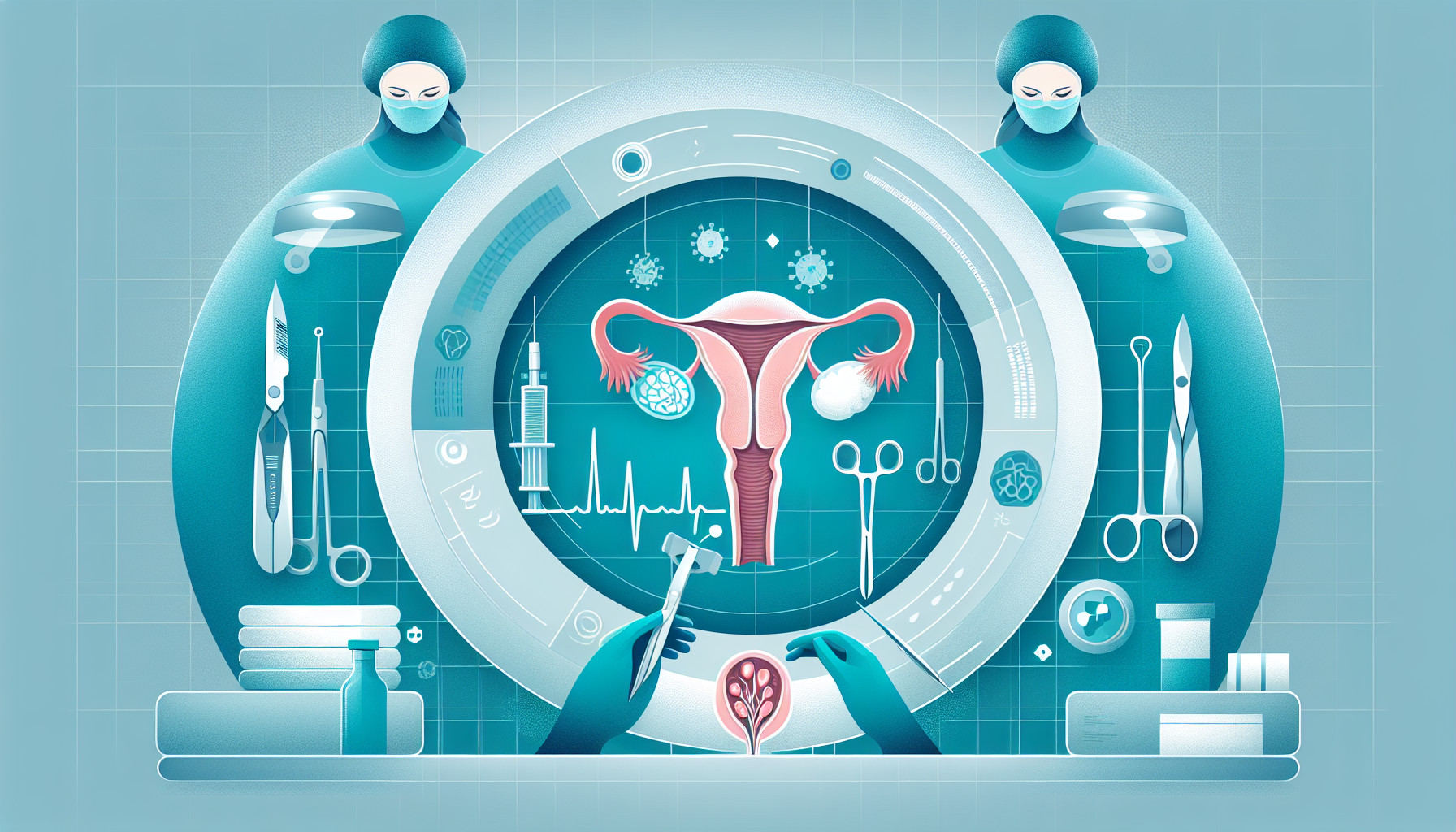Our Summary
This research paper discusses a case where a young woman with a twisted ovary, a large ovarian cyst, and seemingly dead ovarian tissue, was successfully treated using a dye called indocyanine green (ICG) during surgery. The dye was injected into her bloodstream and allowed the surgeons to see if blood was flowing to the ovary both before and after the procedure. The information from the dye helped the surgeons decide to keep the ovary, even though it initially seemed like it wasn’t getting enough blood. The patient recovered well from the surgery and didn’t have any complications within 30 days. The paper suggests that surgeons might be too quick to remove ovaries that seem like they’re not getting enough blood. They argue that, in line with recommendations from the American College of Obstetrics and Gynecology, surgeons should try to preserve the ovary, even when it looks like it might be dead. This approach might avoid unnecessary removal of ovaries, even in difficult cases.
FAQs
- How was the dye called indocyanine green (ICG) used during the surgery for the removal of an ovarian cyst?
- What were the outcomes of the surgery where indocyanine green (ICG) was used?
- How does the research paper suggest the approach to removal of ovaries that seem like they’re not getting enough blood should be changed?
Doctor’s Tip
A helpful tip a doctor might tell a patient about ovarian cyst removal is to discuss with their surgeon the possibility of using techniques like indocyanine green dye during surgery to assess blood flow to the ovary. This can help the surgeon make a more informed decision about whether the ovary can be preserved or needs to be removed. It’s important to explore all options and consider the potential benefits of preserving the ovary whenever possible.
Suitable For
Patients who are typically recommended ovarian cyst removal include those with:
- Large ovarian cysts that are causing symptoms such as pelvic pain, bloating, or pressure.
- Ovarian cysts that are growing rapidly in size.
- Ovarian cysts that are causing complications such as twisting (torsion) of the ovary or rupture.
- Ovarian cysts that are suspicious for malignancy or are causing abnormal findings on imaging studies.
- Patients with a history of ovarian cysts that have recurred multiple times.
- Patients with symptoms such as irregular menstrual periods, infertility, or hormonal imbalances that may be caused by ovarian cysts.
It is important for patients to discuss their individual case with their healthcare provider to determine the best course of treatment for their ovarian cyst.
Timeline
Before ovarian cyst removal:
- Patient may experience symptoms such as abdominal pain, bloating, and changes in menstrual cycle
- Doctor may perform a pelvic exam, ultrasound, or blood tests to diagnose the ovarian cyst
- Patient may undergo imaging tests such as MRI or CT scan to determine the size and location of the cyst
- Doctor may recommend watchful waiting, hormonal birth control, or surgical removal of the cyst depending on the size and symptoms
After ovarian cyst removal:
- Patient undergoes surgery to remove the ovarian cyst, which may be done laparoscopically or through open surgery
- Patient may experience some pain and discomfort after the surgery, which can be managed with pain medication
- Doctor will monitor the patient for any complications such as infection or bleeding
- Patient may need to follow up with the doctor for post-operative care and monitoring
- Patient may experience relief from symptoms such as pain and bloating after the cyst is removed
Overall, the timeline for a patient before and after ovarian cyst removal can vary depending on the individual case and the type of surgery performed. However, with proper diagnosis and treatment, many patients can experience relief from symptoms and a successful recovery.
What to Ask Your Doctor
- What are the risks and benefits of removing the ovarian cyst?
- What are the alternatives to surgery for treating the ovarian cyst?
- How will the surgery be performed and what is the expected recovery time?
- Will the removal of the ovarian cyst affect my fertility?
- What are the chances of the ovarian cyst recurring after surgery?
- Will I need any follow-up appointments or additional treatments after the surgery?
- How long will I need to stay in the hospital after the surgery?
- What are the potential complications of ovarian cyst removal surgery?
- How often do you perform ovarian cyst removal surgeries and what is your success rate?
- Are there any specific lifestyle changes or precautions I should take after the surgery to prevent future ovarian cysts?
Reference
Authors: Klar M, Matsuo K, Juhasz-Böss I, Hasanov MF. Journal: Fertil Steril. 2022 Aug;118(2):417-418. doi: 10.1016/j.fertnstert.2022.05.031. Epub 2022 Jun 10. PMID: 35691717
